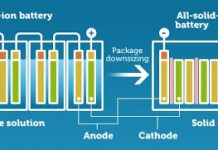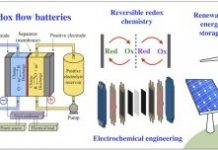John Petersen
In one of my first articles, “Battery Technology: A Different Set of Rules,” a commenter suggested that I was a bit of a Captain Buzzkill. Eighteen months later it’s clear that a lot of readers share that uncharitable view. This morning I had an e-mail exchange with a reader that raised the same basic issues and reminded me that it’s been a while since I’ve discussed the fundamental differences between energy storage and other technology related sectors. Since the subject matter can be very important to investors who want to make sound decisions, I’ve decided to edit the e-mail exchange and publish it as an article.
Inquiry: I’ve read your posts and thank you for your insights into the topics you cover. I have to ask this however … is there not “anything positive” you can say with regards to lithium-ion battery companies? I mean, can’t you give credit for anything? It seems to me that in a necessary longer term evolution of technologies they and others DO play a critical role in getting from proverbial A to B for all of us.
Response: I believe several lithium-ion battery developers have the potential to become fine companies and that the world desperately needs all of the lithium-ion, lithium air, sodium sulfur, zinc bromine, lead acid, lead carbon, sodium metal halide and nickel metal hydride batteries we can make. The products are critical to an energy efficient future and so are the companies that make them. The needs are immense beyond imagining but companies that want to survive and thrive in the energy storage sector need to be willing and able to say:
- We can provide batteries for Application A today and earn a reasonable profit;
- With luck we may be able to provide batteries for Application B in X years and earn a reasonable profit; and
- Until the market dynamics change, we won’t be able to provide batteries for Application C and earn a reasonable profit.
Any other approach is certain to set up unreasonable expectations in the collective consciouness of the market and over the years I’ve seen too many examples of disastrous market reactions to unsatisfied expectations. Given my long and sometimes painful experience advising small companies, I have a hard time remaining sanguine when companies start the game by setting their goals too high.
Over the years I’ve had a number of friends and clients decide that they wanted to sell products to WalMart. The negotiations were long and brutal, but the vendors were always delighted when their products hit the shelf because the sales volumes were immense. Within about six months, they discovered to a man that it was almost impossible to sell anything to WalMart and earn a reasonable profit margin. Within eighteen months they were all out of business.
Selling batteries for electric cars and utility applications is a lot like selling a product to WalMart. Starting negotiations from a position where you’re saying “we understand that we won’t be able to business with you unless we can slash our costs by at least 50% coming out of the chute” is darned near suicidal. Small companies need to start in markets where they can earn outsized profits while they learn to optimize their activities. Learning to swim in the shark tank is a good way to get eaten.
Right now the lithium-ion battery developers are promising a brave new world of electric cars and grid-based storage. I’ve shown why electric cars are a horrifically suboptimal use of batteries. I’ve also seen drafts of a new report from Sandia National Laboratories that shows most grid based applications will require even cheaper batteries than the automotive sector requires. At last fall’s EESAT conference in Seattle, Ali Nourai of American Electric Power explained that they’re ‘technology agnostic” as a company and their current efforts are focused on lithium-ion batteries because they assume that sales into the automotive market will drive lithium-ion battery prices to low enough levels that they’ll be attractive for low-value utility applications.
In Joseph Heller’s classic novel Catch 22 a character named Milo Minderbinder planned to buy eggs for a dime, sell them for a nickel and make it up on volume. That can’t happen in the real world, regardless of what people want to believe.
If the lithium-ion battery developers were all out telling the market that they planned to focus on high value markets that they could serve today and they hoped to expand into other markets as they built experience and improved their technology, I’d be a huge booster. As long as they’re promising things that can’t happen in the real world, they’re either setting the market up for major disappointment or setting themselves up for a string of losses that won’t end until a Chapter 11 petition is filed. I can’t be a cheerleader for either of those outcomes.
Follow-up: Thanks so much for your kind reply … Very interesting conclusions is all I can say. This reminds me of none other than solar, and look at where those stocks are this week “as we speak” eh ? Even the “best of the breed” are subject to subsidy cuts as was obvious just the other day, with the announcements out of Germany, proposing to cut more than were the expectations of the market. The only good things that can be said about it is that is causes prices to get cheaper for the end user, and makes the industry far more competitive in the long run I suppose, but it sure does just basically kill positive forward guidance at a time when it sure would be nice to have some, hmmm ?
Reply: Based on the experience of the last 40 years most investors are optimistic about the future of all things alternative energy. In some cases the optimism is warranted. In others, particularly in energy storage, the optimism is dangerous.
Substantially all of the miracles of the information and communications technology revolution were due to advances in the science of physics. Researchers have found ways to use steadily smaller resource inputs to get exponentially larger outputs. It’s been true in communications, computing and even solar cells. As a result the idea that it’s always possible to do more with less has been burned into our collective psyche and the masses resist any suggestion that another result is even possible.
The biggest problem with energy storage is that it’s all based on chemistry, which is limited by an entirely different set of natural laws. On any given atom there are a defined and immutable number of sites where chemical bonds can be formed and reactions can take place. For hydrogen atoms the number is 1; for oxygen atoms the number is 2; for nitrogen atoms the number is 3 and for oxygen atoms the number is 4. I could continue the series but you get the idea. When you put atoms together to make stable molecules, the number of bonds on each side have to match. That’s why chemical compounds are express with formula like H20 or CO2 or NH3 or CH4. No matter what we do the ratios can’t change, the number of atoms in a gram of material can’t change and the number of possible chemical bonding sites in a gram of material can’t change.
Most chemical reactions used in battery chemistry are quite efficient to start with, which means that the best researchers can do is work around the margins to maximize the surface area where reactions can occur. There’s a lot of talk about nanotechnology in the battery sector but what it all boils down to is grinding materials into extremely fine particles in order to maximize surface area. In the case of some of the carbon compoun
ds used in batteries, surface area has already been optimized to the point where a single gram of material has as much surface area as a football field. About the only advances on the horizon that promise to significantly increase surface area are materials like carbon nanotubes and graphene, but they’re terribly difficult to work with and ungodly expensive. Since the materials have been the subjects of intense research and development for the last 10 to 20 years and progress has been extraordinarily slow, I don’t expect breakthroughs tomorrow.
The bottom line is that chemistry is grunt manufacturing that requires immense amounts of raw material. The science is progressing every day but you rarely see disruptive changes from companies like Dow, Monsanto, Exxon and the like. The battery industry will be no different.
Because we’re dealing with chemistry instead of physics, current lofty expectations of rapid disruptive change are misplaced. There will no doubt be progress, but it will not be rapid or disruptive. The bottom line is progress in the storage sector will mirror progress in the chemical industry in spite of the fact that the the goal is to store electricity.
Conclusion: I’m a huge booster of the energy storage sector and want everybody in the industry to be fabulously successful. The really crazy part is I don’t even think about competition between companies because I believe every company that brings a reliable and cost-effective product to market will have more business than it can possibly handle. What I object to are outsized claims of likely technical progress and cost reductions from advances in chemistry in a resource-constrained world. Human beings always want more than they can possibly have because that’s the nature of the beast. Promising to satisfy human desires that are beyond the limits of the possible is neither good business nor good public relations.








